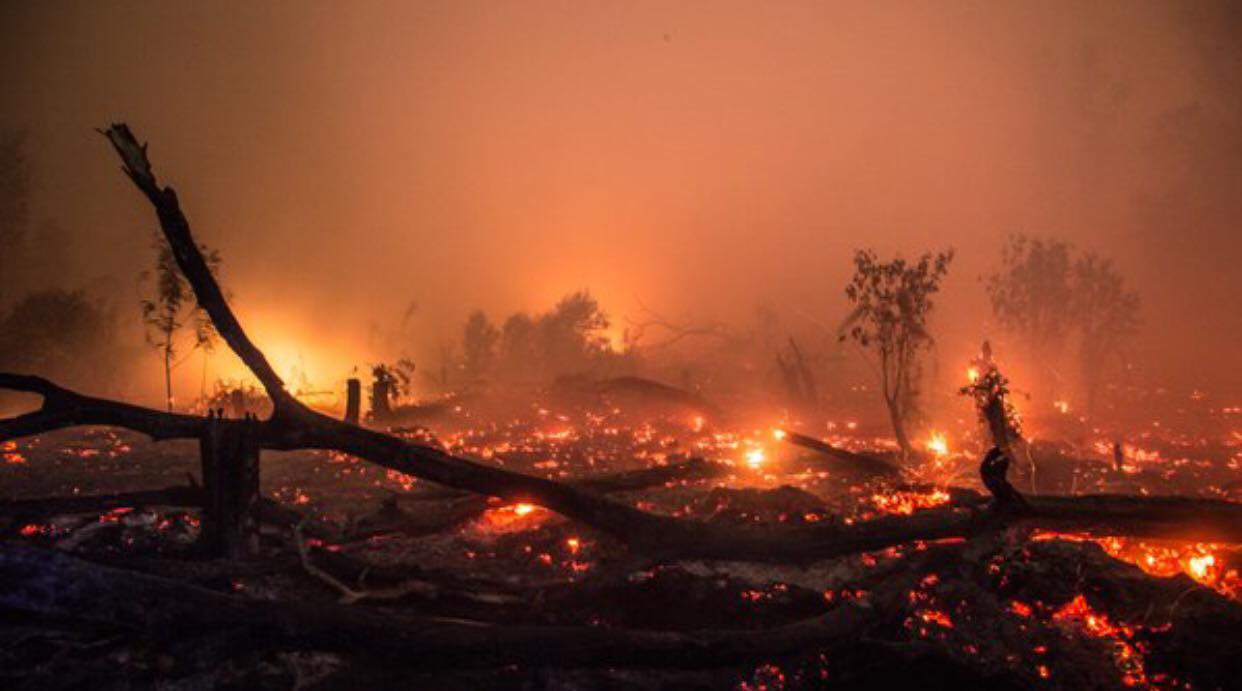
After more than two months of choking haze, life has pretty much returned to normal for the people in Singapore. But it will all just repeat itself next year if nothing is done in the meantime, according to Mette Langebæk.
Mette Langebæk is from Denmark but lives in Singapore and has experienced the haze at a close range. She is a member of World Forests and here she has written a blog entry in which she, among other things, explains the complexity of the search for the culprits to blame for the fires at Borneo and Sumatra.
Mette Langebæk is also one of the founders of the Hazebusters Group. A group which on Facebook describes themselves as people “that tries to find ways in which we can influence the development towards stopping the recurring of the illegal burning of forests in South East Asia.” The group’s members consist of Danes residing in Singapore and at the moment the group has 55 members, but the number keeps growing.
Hazebusters are trying to influence producers, retailers and consumers to change their policy and consumption towards avoiding products that are made on the basis of the burning. One way they did and still do this is by contacting manufacturers, make donations and sign various appeals.
“We got in touch with other groups working parallel to our group through social media. We bombard all the media we can with our joint vision, but we also work individually with our own ideas. One has chosen to focus on making a collection for the reforestation of rainforest areas, another person writes for retailers and manufacturers. One obtains personal contact with other groups, while one has chosen to focus on a possible art happening. And we gather all the new information about how the entire situation develops both physically and politically,” Mette Langebæk explains.
As Mette Langebæk mentions, the Hazebusters Group is not the only example of people mobilizing against the haze. Another example is the even bigger group called Haze Elimination Action Team (H.E.A.T.), which consists of a group of volunteers who want to stop the haze by suing the companies and boycotting their products. This group has over 3,000 members with nationalities from all over the world. Both the Hazebusters and H.E.A.T. have the same end goal, and a few weeks ago when the haze was at its worst, Hazebusters managed to get through to the media. TV, newspaper articles and social media glowed, and people started asking the group what they should do to help and what to buy or not buy.
“We think that it has an impact, and you can see that the whole Western world is focused on the issue now. Obviously we are not to blame for all this, as we are just a small player,” Mette Langebæk says.
The members of the group are at the moment working in different areas. Mette Langebæk is trying to make an event with RED ORANGUTANGEN happen sometime in the early 2016, where an effort to try and raise money for reforestation and help towards orangutans who have lost their habitat will be made. Even though the haze has come to a halt, the Hazebusters will continue to meet and spread both their message and the information about the products people should avoid.
Mette Langebæk recently managed to get in touch with United Plantations, a palm oil producer and one of the businesses most committed to sustainability in the palm oil industry. United Plantations is at the moment working with Copenhagen Zoo on a new project, and a representative from both United Plantations and Copenhagen Zoo have expressed a great interest in coming to Singapore to speak to the Hazebusters Group.
“My hope is that there is more awareness of the importance of preserving the unique nature of Southeast Asia’s rainforests, and that we, although we are small players can help to do just a little bit so that our atmosphere is not destroyed completely. Our opponent is the great corruption and indifference, particularly in countries like Indonesia and Malaysia, where it is also paired with ignorance and avarice. We have no opportunities to influence these opponents directly, but we hope that our initiatives can help to influence in such a way, that it becomes more worthwhile for manufacturers to be sustainable,” Mette Langebæk concludes.
The fires are calculated to so far have cost the Indonesian government more than US $30 and have placed Indonesia above China and US as the biggest global climate polluter. The Vice-President of Indonesia, Jusuf Kalla, has stated that it would likely take the government five years to solve the forest fire problem.

